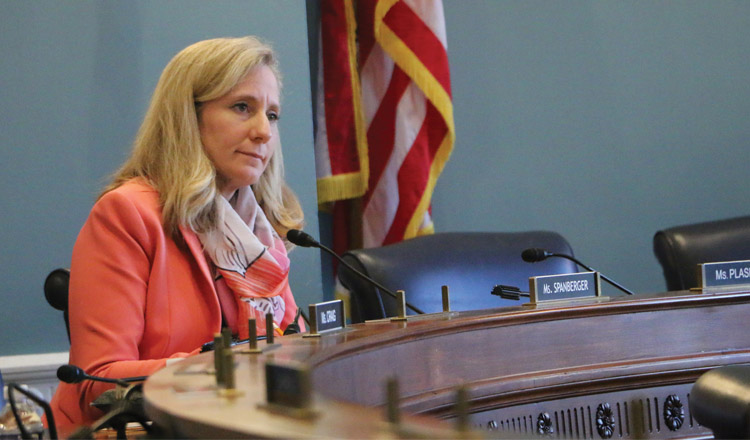Abigail Spanberger’s approach to politics is simple: ask questions, get answers, create solutions.
When Abigail Spanberger (MS M’02) ran for Virginia’s seventh Congressional district in 2018, you probably wouldn’t have put money on her chances.
Republicans held the seat for nearly 40 years. Its election outcomes were predictable. If you heard mention of it, it might have been in 2014 when Tea Party candidate Dave Brat upset Eric Cantor, the number two Republican in Congress. Brat won two terms, first by 24 points in 2014 and then by 15 points in 2016.
Spanberger’s campaign brought a different style of politics to the district. A Blue Dog Democrat and member of the bipartisan Problem Solvers Caucus — featuring an equal number of Republicans and Democrats — Spanberger has been the target of progressives in her own party and was one of a handful of Democrats to publicly oppose Nancy Pelosi’s leadership in the House. A former CIA case officer, this no-nonsense, solutions-driven focus was second nature for Spanberger.
“I worked in a very nonpartisan role,” says Spanberger. “You would fight and argue and talk about how to achieve the mission and make sure that you’re thinking through every contingency, but it was always with the goal of doing the best things for the country.”

And that’s where Spanberger’s time at Purdue comes in.
A highlight from her time at Purdue was one of her professors, Patrick Johanns.
“I was not naturally adept at quantitative methods and all the elements of statistical analysis, but I really remember that class because I remember being struck at how much he would make it really interesting and try to make it digestible, even though it was one of the hardest classes I’ve ever taken.”
Today, Spanberger’s ability to work through hard, complex issues is part of what situates her in the crossfire of Republicans and Democrats alike — and part of why she is eager to work with both parties on creating a path forward.
“Given my background in intelligence, all you do is identify problems and ask, ‘What additional questions do I need to ask, and what questions do I need to answer to fully understand the scope of this problem?’ Perhaps it’s a little oversimplified, but at the end of the day, I thought, ‘There’s a lot of problems that need to get fixed, and I want more people in Washington focused on fixing problems than just pointing fingers at them.’ And that’s really what motivated me to run.”

